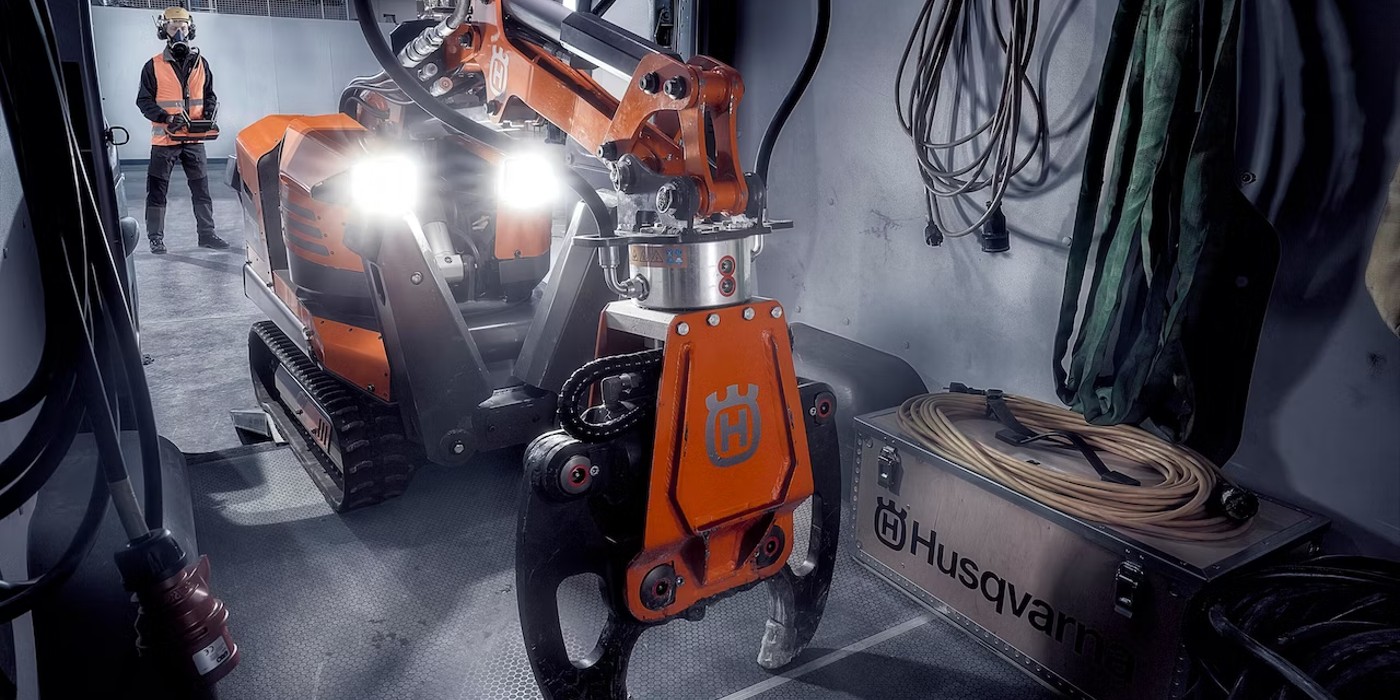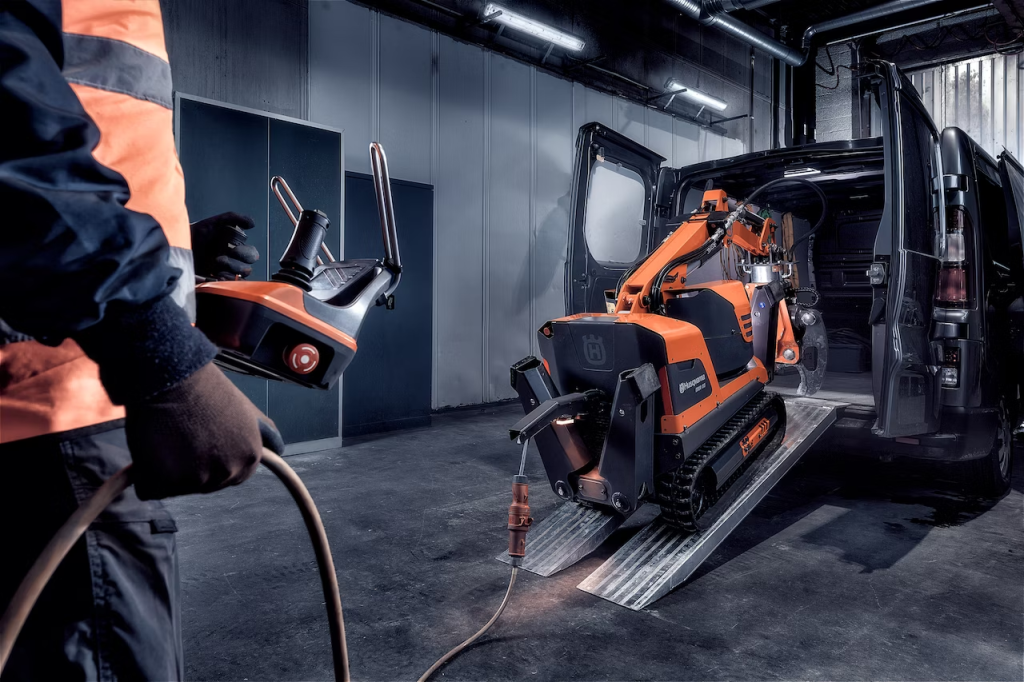
Designed to handle indoor demolition work in confined spaces, Husqvarna’s new DXR 95 electric demolition robot is small enough to fit in a standard work van, and tough enough to manage steep 30° inclines.
Best known around these parts for their electric lawnmowing robots and motorcycle/scooter concepts, Husqvarna has a long tradition in the construction space, and the DXR 95 represents the fifth such demolition robot introduced by the company in recent years.
That said, the new DXR 95 features a 13 hp electric powertrain capable of delivering up to 3,626 psi to the end-of-arm tool, making demolition tasks like rock breaking or chimney removal a snap. What’s more, the versatile little robot can deliver consistent performance throughout the duty cycle, thanks to Husky’s new generation thermal management technology.
“We are committed to giving our customers a competitive edge, and the DXR95 raises the bar for user-friendliness and performance in demolition robots,” said Daniel Lundberg, global product manager at Husqvarna Construction. “Now, construction professionals everywhere can get the job done more efficiently – wherever the job may be.”
Husqvarna DXR 95 fits in a standard van

That “wherever the job may be” doesn’t just refer to the job’s geographic location — though the DXR 95’s small footprint and relatively light weight (just under 1,000 lbs.) do help with that. It means that the newest Husqvarna can get just about anywhere inside a structure that it needs to, thanks to remote control operation that keeps operators at a safe distance and dual tank treads that enable it manage steep inclines, angles, sometimes even stairs. All without exposing operators to harmful chemicals in older buildings or falling debris in less stable environments.
“The DXR 95 answers the demand for a demolition robot that can fit into cramped or fragile environments,” continues Lundberg. “(It) truly delivers the power and performance that professionals need.”
Features include dual joysticks and knobs, written messages for machine feedback, and the ability for operators to choose their preferred language in seconds. Additional features include a heavy-duty arm system with friction-welded cylinders, automatic greasing of the breaker for long service intervals and protection of parts in the tough lower chassis, and easily-accessed modular components designed to facilitate on-site service and maintenance.
Electrek’s Take
It’s a weird twist, but the fact remains that the people who stand to benefit most from electrification seem to be the very people most likely to rail against it. The more we can put EVs into environments where they can unquestionably make work easier, safer, and just plain better, the more we’ll accelerate the mainstream adoption of EVs on the road.

stromectole online – stromectol 12mg buy cheap generic carbamazepine
zithromax canada – order nebivolol online order bystolic without prescription
prednisolone 5mg without prescription – generic azithromycin buy prometrium 200mg without prescription
neurontin 600mg price – brand gabapentin buy sporanox 100 mg online cheap
buy augmentin 625mg online – cost amoxiclav buy generic duloxetine
order acticlate pills – order glipizide 5mg online cheap buy generic glipizide 5mg
augmentin 1000mg brand – oral augmentin 625mg order duloxetine without prescription
order semaglutide 14 mg generic – order generic semaglutide order periactin 4 mg generic
order atorvastatin 80mg without prescription – cost lisinopril buy lisinopril 5mg online cheap
oral atorvastatin – order zestril 5mg online buy lisinopril generic
buy lipitor generic – generic atorvastatin 10mg lisinopril 5mg cost
buy prilosec 20mg online – buy tenormin 100mg without prescription cheap tenormin 50mg
buy clarinex generic – order loratadine 10mg online cheap priligy where to buy
buy acyclovir 800mg without prescription – rosuvastatin 10mg without prescription buy rosuvastatin 10mg online